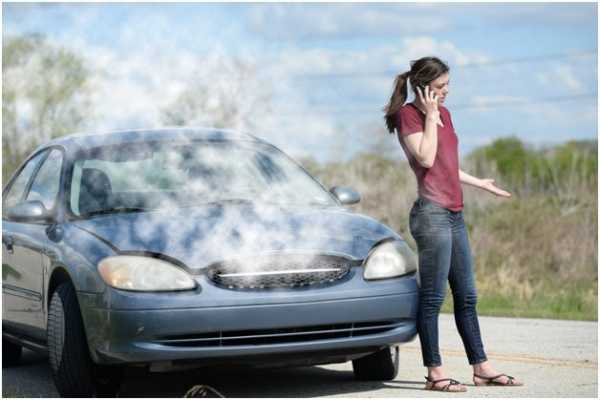Are you having issues with your vehicle? Are you struggling to pay your car repairs out of pocket? Well, you may be surprised to learn that you have coverage available through your auto insurance provider. However, you might be wondering,
“Will car insurance cover repairs?” Well, that answer depends on the circumstance. To learn more about auto repair coverage, read on below.

Will Car Insurance Cover Repairs?
Auto insurance is mandatory in most states. In states where it`s a necessity, you are usually only required to get a particular level of coverage—which is liability insurance. Liability covers injuries to others and their property caused by your car.
Comprehensive and collision insurance are optional. They’re the two forms of insurance that’ll pay for the damages to your vehicle.
Car insurance does not cover routine maintenance. However, it does take care of repairs incurred as a consequence of a vehicle accident.
It may also cover repairs due to vandalism or severe weather. But that`s only if you have comprehensive and collision coverage.
Does Auto Insurance Cover Car Breakdowns?
Maintenance services like oil changes aren`t covered by vehicle insurance, according to the National Association of Insurance Commissioners. Auto insurance won’t pay for the expenses of repairing your vehicle if it’s for normal maintenance or a mechanical problem.
If your car breaks down, expect to pay for it out of pocket.
Auto insurance will not cover the cost of a rented automobile if your car breaks down. Rental reimbursement coverage, on the other hand, assists in covering the expense of a rental vehicle.
For instance, if you need a vehicle while yours is in the shop after an accident, this coverage can help with the price of renting one. Not only that, but it could assist in funding other methods of transportation, such as bus or train fares. Just keep in mind that this extra policy generally has restrictions.
Understanding Mechanical Breakdown Insurance
Some insurance providers offer mechanical breakdown insurance (MBI) to assist in paying for routine repairs. It isn’t included in your standard auto insurance plan, and it isn’t mandatory coverage.
Older automobiles may not be eligible for MBI coverage. Unfortunately, the few insurance firms that do provide MBI sometimes only cover new vehicles with low mileage.
How Does MBI Differ from an Extended Warranty?
If you bought an extended warranty for your automobile, you might already have coverage for mechanical problems. Cars are generally protected by a manufacturer warranty when they`re bought new. Basically, it’s a promise that the manufacturer will pay to repair any issues that arise with the vehicle’s parts or systems.
Most warranties are transferable. Even if you acquired your automobile brand new, it may still have some time remaining on the original warranty.
Also, you can buy an extended warranty from the auto dealership or a third-party provider. Doing so will provide ongoing coverage for specific problems— even after the manufacturer’s guarantee has expired.
Extended warranties are sometimes cheaper than MBI depending on the automobile. However, they might have a more restricted scope in terms of the repairs they’ll cover. An extended warranty does not cover normal wear and tear.
Repairs, like brake pad replacements or interior restoration, are excluded. If you’re thinking about getting an extended warranty, compare the cost to the coverage of the MBI that your insurance company provides. It’s possible that your vehicle insurance provider offers an MBI that extends beyond the scope of an extended warranty.
Additional Options for Covering Car Repairs
Roadside help is another option to explore. Towing services, flat-tire replacements, jumpstarts for dead batteries, and other services are commonly available through roadside assistance.
It`s usually provided as part of a subscription. But it could also be part of your vehicle insurance policy on an “as-needed” basis.
While car insurance does not cover normal maintenance or mechanical repairs, it does cover a broad range of situations. Car issues resulting from hail damage and vehicle collisions are the exception.
Examine your insurance policy to learn what coverages you have. That way, you’ll know exactly what your insurance pays for and what it doesn’t.
Let’s say you have window tint on your car, and your windows are damaged by hail. Your auto insurance might pay for you to get your windows fixed, as well as new tint.
If you need to replace the tint on your windows, follow the highlighted link to learn some of the best types of car window tinting.
Should You Buy Extra Coverage for Repairs?
For the most part, you have to pay for car repairs out of pocket. If your car goes out on you, the expense is yours—especially if you don’t have warranty coverage.
But be sure to keep your auto insurance intact, so if you’re ever in an accident, you can get your vehicle fixed for free.
Also, if you have an older car, it’s in your best interest to get a policy that contains roadside assistance. That way, you’ll feel secure knowing that you can have your car towed if it breaks down.
If your car is fairly new, MBI coverage might not be necessary. The extra money you spend might be more than the car repairs. Do the math and weigh the pros and cons.
Car Repair Coverage Made Easy
Hopefully this article answered your question of, “Will car insurance cover repairs?” As you can see, there are a lot of different avenues that you can use to get assistance with paying for car repairs.
Obviously, you can’t use your insurance to get an oil change. But you can take advantage of all of the resources out there for car repair coverage.
If this information was helpful, feel free to continue browsing our website and consider sharing this post on your social media accounts!

